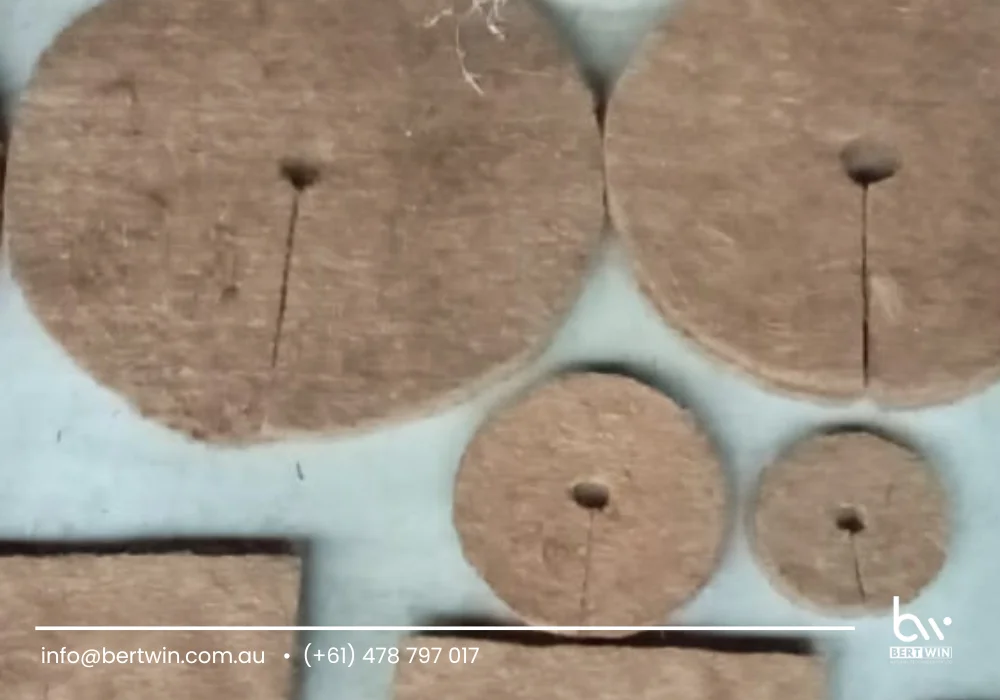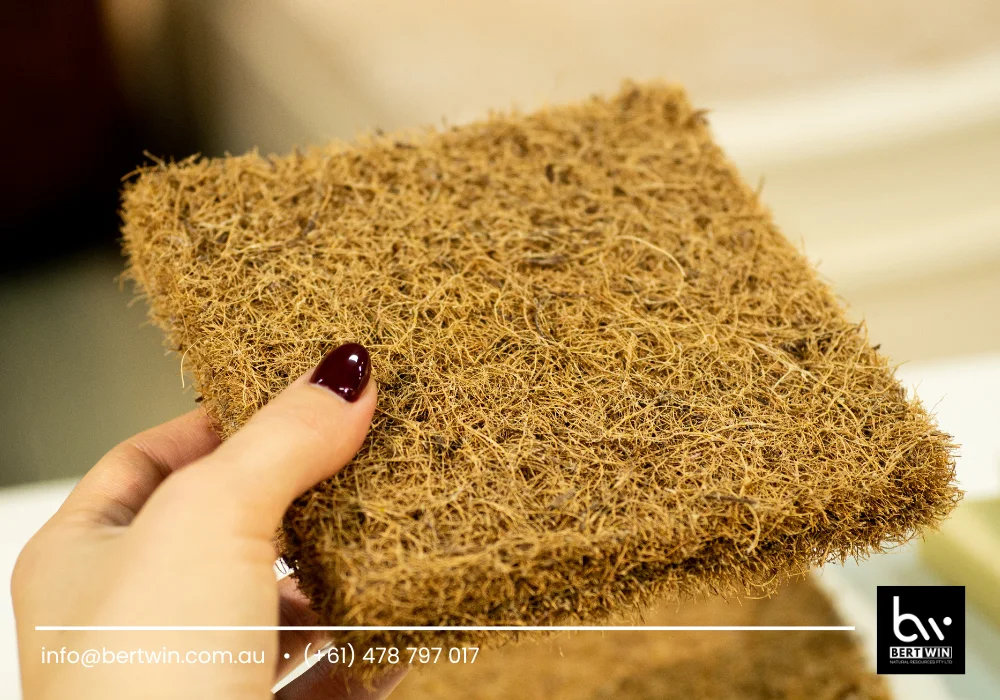Coir mulch benefits are gaining attention among gardeners, landscapers, and environmentalists due to its natural, renewable, and highly effective properties in soil management. Made from the fibrous husk of coconuts, coir mulch is a by-product of the coconut industry and serves as an excellent organic alternative to synthetic or bark-based mulches. It is increasingly used in both domestic and commercial horticultural applications.

In this article, we will explore the key coir mulch benefits, including its impact on soil health, water conservation, plant growth, and ecological sustainability.
What is Coir Mulch?
Coir mulch is created from coconut husk fibers that are processed into mats, bricks, blocks, or loose fibrous material. Unlike traditional mulch made from bark or wood chips, coir retains moisture exceptionally well and breaks down at a slower rate, offering longer-lasting results. It is free from chemicals and safe for all types of plants.
Due to its durability and organic nature, coir mulch is suitable for a wide range of applications, including vegetable gardens, ornamental landscaping, nurseries, and erosion control.
How Coir Mulch is Made
The production of coir mulch involves extracting the coarse fibers from the outer husk of the coconut. These fibers are then cleaned, dried, and compressed into various forms for use in gardening. The entire process is environmentally friendly and utilizes waste material that would otherwise be discarded.
Top Coir Mulch Benefits
Understanding the specific coir mulch benefits can help gardeners and farmers make more informed decisions about soil health and environmental impact.
1. Excellent Water Retention
One of the greatest coir mulch benefits is its ability to hold water. Coir can absorb up to 10 times its weight in water, making it ideal for dry climates or regions with infrequent rainfall. It maintains soil moisture for longer periods, reducing the frequency of watering and conserving water overall.
2. Improved Soil Aeration and Structure
Coir mulch promotes proper air circulation in the root zone, preventing soil compaction and improving oxygen availability. This helps plant roots grow stronger and healthier. It also aids in breaking up clay-heavy soils and provides better drainage in dense soil types.
3. Natural Weed Suppression
By covering the soil surface with a layer of coir mulch, sunlight is blocked from reaching weed seeds. This natural barrier reduces weed germination and growth, minimizing the need for herbicides or manual weeding.
4. Temperature Regulation
Coir mulch acts as an insulator, keeping the soil cooler during hot summer months and warmer during colder seasons. This temperature balance reduces stress on plants and contributes to consistent growth.
5. Slow Decomposition Rate
Another key aspect of coir mulch benefits is its slow breakdown. While it is biodegradable, coir decomposes more gradually than straw or bark, providing long-lasting soil coverage and reducing the frequency of replacement.
6. Eco-Friendly and Renewable
Derived from the coconut industry, coir mulch is a renewable resource that makes use of what would otherwise be agricultural waste. Its use reduces the demand for non-renewable mulch options and supports sustainable agricultural practices.
7. Safe for All Plant Types
Unlike some wood mulches that may alter soil pH or carry pathogens, coir mulch is pH-neutral and free of pests, making it safe for vegetables, flowers, herbs, and trees.

Applications of Coir Mulch
The coir mulch benefits extend to a variety of settings. In commercial agriculture, coir is used in fruit orchards and plantations. In urban landscaping, it provides an attractive and functional ground cover. It is also widely used in nursery trays and as a growing medium in hydroponics.
Coir mulch is easy to transport and install. It can be applied as loose mulch around plants or laid in mat form for larger landscaped areas or erosion control on slopes.
Using Coir Mulch Effectively
For best results, apply a 2–3 cm layer of coir mulch around the base of plants, ensuring it does not directly touch the stems to avoid rot. In dry climates, combining coir mulch with drip irrigation systems can maximize water efficiency.
Why Choose Coir Mulch?
The choice to use coir mulch is not just a gardening decision—it’s an environmental one. With the increasing need for sustainable practices, more gardeners and landscapers are turning to natural solutions like coir mulch. Its long-term soil benefits, eco-compatibility, and ease of use make it a wise investment for healthier gardens and a healthier planet.
Conclusion
The wide-ranging coir mulch benefits—from moisture retention and weed suppression to sustainability and plant safety—make it a superior choice for anyone serious about environmentally conscious gardening. Whether you’re a home gardener or a professional landscaper, coir mulch offers performance, protection, and peace of mind.
For further information, you may contact WhatsApp at (+61) 478797017 or via email at info@bertwin.com.au.
